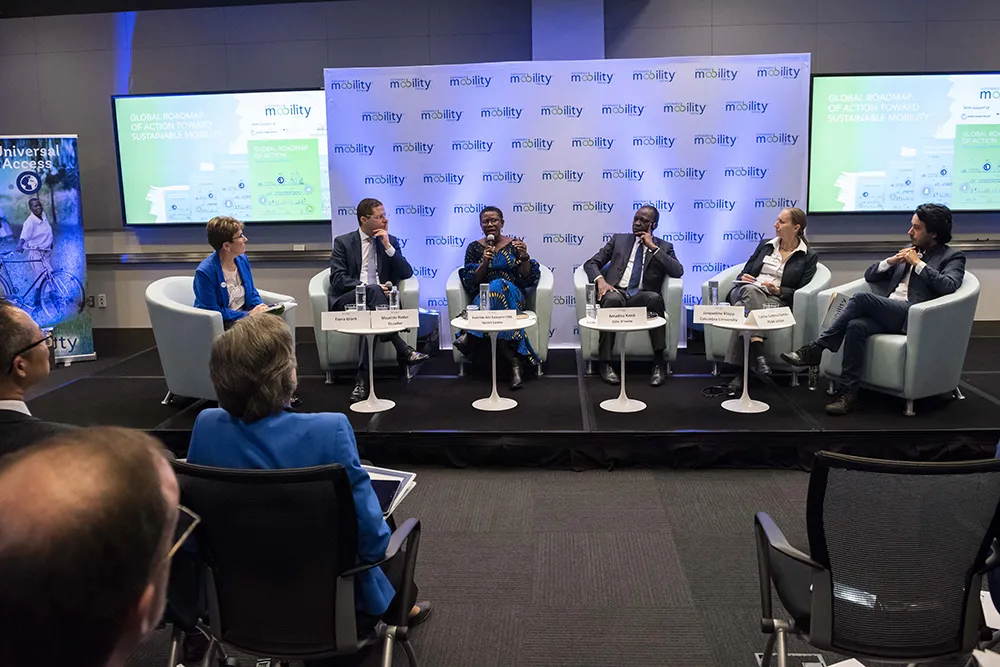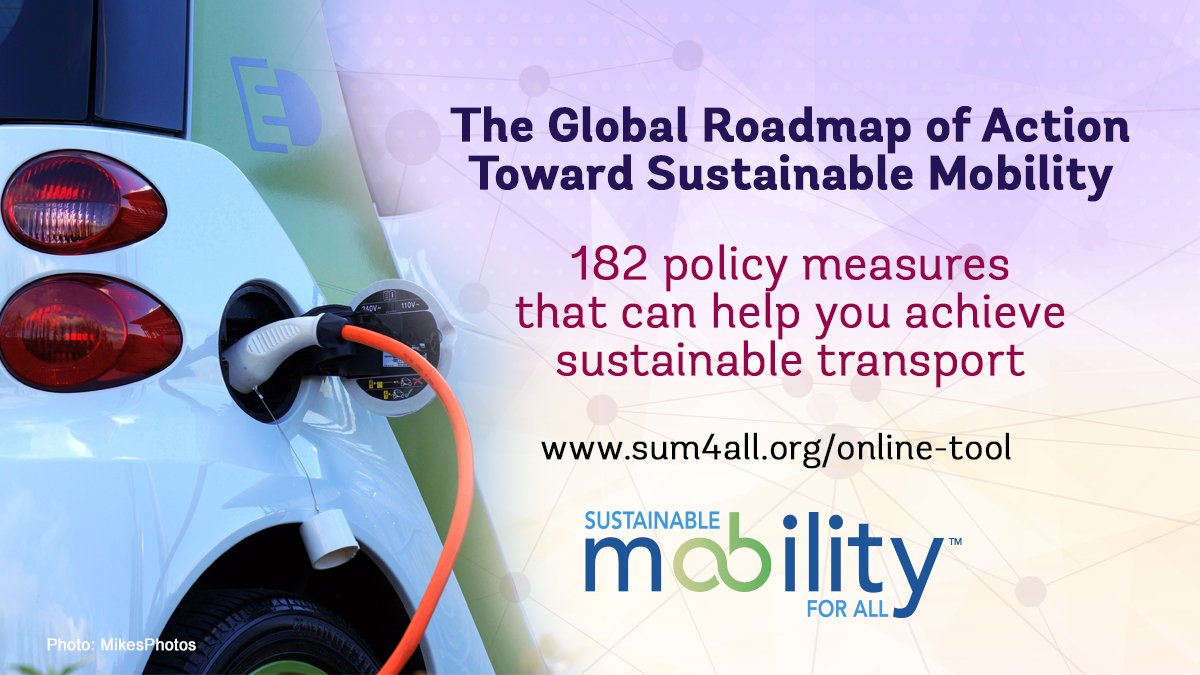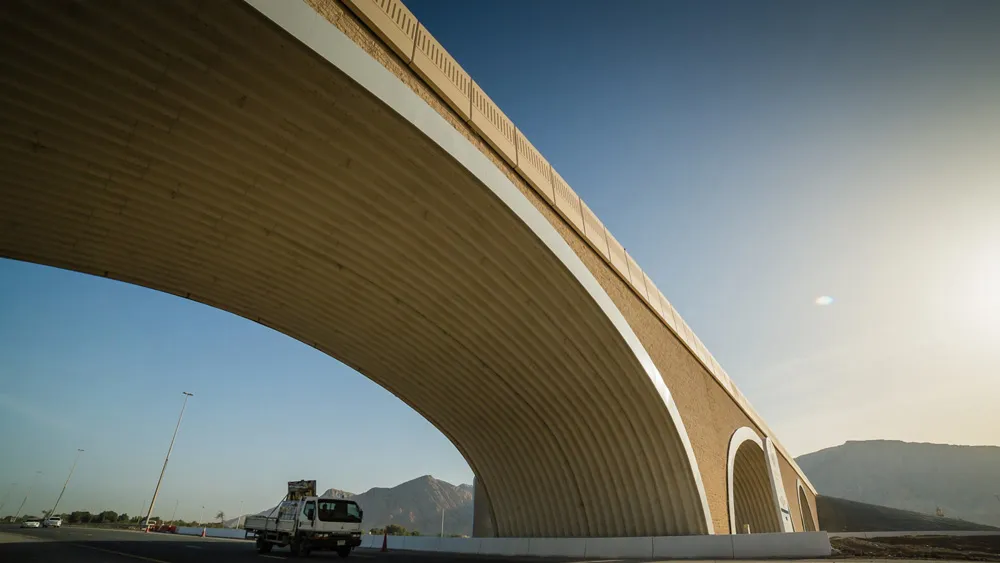
This tool is intended to guide country decision-makers on “how to” achieve mobility that is efficient, accessible, safe, and green. The Honorable Mayor of Freetown, Yvonne Aki-Sawyerr OBE; the Honorable Minister of Transport Cote D’Ivoire, Amadou Koné; the Former Mayor of Quito, Ecuador, Mauricio Rodas; the Co-director of the Center for Sustainable Urban Development at the Earth Institute from Columbia University, Dr Jacqueline Klopp; and the Researcher of PEAK Urbam, Dr Carlos Cadena-Gaitán participated in the high-level launch to discuss how the GRA can help country and city leaders achieve sustainable transport.
The GRA is the first-ever global effort to look across the four policy goals of accessibility, efficiency, safety, and green mobility for all modes of transport. This groundbreaking tool enables any country to measure how far it is from sustainable mobility, explore more than 180 policy measures, prioritise those that are most impactful and lay out a path forward with actions to take over time. The GRA is complemented by a private sector consultation summary paper; six policy papers to help countries achieve the policy goals; and an online tool to evaluate country mobility performances and tailor action plans.

"The current mobility system takes a heavy toll on our planet and leaves many people behind. In most cases, it is also expensive, inefficient, and unsafe. The GRA serves as an important tool for policymakers to act now and turn the vision of sustainable transport into a reality," said Nancy Vandycke, Program Manager of SuM4All and World Bank Lead Economist.
According to the GRA, globally, one billion more people would be connected to education, health and jobs if we close the transport access gap in rural areas; improvements in border administration, transport and communication infrastructure could increase global GDP by up to US$2.6 trillion; and an additional 1.6 billion people would breathe cleaner air if transport pollution was halved.
“With the GRA we have finally and for the first time a clear vision that can be translated into immediate action. We look forward to working with countries and industry on a new and impactful pipeline of projects," said Susanna Zammataro, Director General, International Road Federation (IRF).








